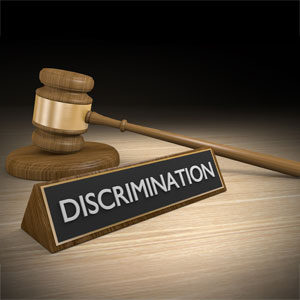
In this article, you can discover…
- The step-by-step process for filing an LGBT employment discrimination claim.
- The typical litigation process in an LGBT employment discrimination case.
- Golden Rules for clients who are facing LGBT discrimination in the workplace.
What Is The Process For Filing An LGBT Employment Discrimination Claim With The California DFEH?
It’s important to understand that while The California Department of Fair Employment and Housing (DFEH) handles workplace discrimination complaints, and while you do file a complaint with them, this is not the same as filing a lawsuit in court.
The DFEH has a process to investigate and attempt to resolve complaints before a lawsuit is filed. In California, individuals cannot file a lawsuit for employment discrimination unless they submit a claim to the DFEH.
Once a complaint is filed with the DFEH, they begin their investigation into the situation. Depending on the outcome, the case may result in a settlement, a determination that the person has a valid claim, or that there isn’t a valid claim at all.
Attorneys will often file the claim and request a right-to-sue letter on the same day. Once the right-to-sue letter is issued, the individual has one year to file a lawsuit.
It’s worth mentioning that since the rise of the #MeToo movement, California has extended the statute of limitations for filing a claim with the DFEH. Previously, individuals had only a year to file a complaint; that period has been extended to three years for claims related to harassment and discrimination.
This situation is an excellent demonstration of why hiring an attorney is crucial. An experienced lawyer is aware of these deadlines and will make sure your case is handled correctly.
What Is Arbitration, And Is It Mandatory In California Employment Discrimination Cases?
I always try to push for mediation to resolve matters before spending years and significant costs on litigating a case. I’m probably among the 10% of lawyers who don’t immediately dive into full litigation when I take on a discrimination case.
Instead, I prefer to start with a thorough Zoom intake with my clients. Before COVID, I would do the intake in person, but Zoom allows me to connect with them just as effectively and is far more convenient. The intake process is essential to me because I don’t see my clients as just another number on my list – I want to know who you are and what matters most to you. I want you to get to know me, too.
After the intake is completed, I send out a representation letter, secure your personnel file, and review it. I also share the file with you to ensure its accuracy and check for any discrepancies or fabrications.
After that, we draft a demand letter. At this stage, 90% of attorneys would file a lawsuit. I don’t take that route because it’s going to result in extra time and expenses for you. It’s my job to make your life easier, not harder.
I send the demand letter and wait for a response. When I receive a response, I’ll go back and forth, negotiating and working towards a resolution.
If the other side dismisses the claim and doesn’t take your grievances seriously, I’m prepared to proceed with litigation. But I always try to resolve matters first.

Attorney Kevin Levian is a caring and dedicated attorney in California. He has fought for hundreds of clients in the Los Angeles area. With 20 years of experience, he will work diligently to ensure you feel supported and heard as you seek restitution for your discrimination.
Still have questions? Ready to get started? Contact Levian Law today to schedule a free initial consultation.
What Is The Typical Litigation Process In An LGBT Employment Discrimination Case?
The typical litigation process is the same for all employment matters, not just LGBT-related cases.
After we file a lawsuit, we serve the defendant papers, notifying them of the claim. The defendant has 30 days to respond to the complaint. Once the defendant responds, we enter the discovery stage.
During the discovery stage, we are going to propound, which means submitting written questions and requesting information. They will respond, or they’re going to propound on us. Then, we’ll have to respond to questions submitted by the defendant. All questions must be answered honestly under penalty of perjury.
The next stage is deposition. Depositions are taken under oath, either via video or in person. The opposing side will also get to depose you.
The most important witness in any lawsuit is the plaintiff – you.
The plaintiff is the one making the allegations in the complaint. As long as the cause of action is properly pleaded, the opposing side cannot object to the allegations at this stage. This is where evidence comes in to prove your allegations true or not.
As the case progresses, the date of trial approaches and creates added pressure for everyone. Nobody wants to go to trial because trials are lengthy and expensive. It’s also a gamble because you never know what the judge or jury is going to decide. Anything can happen, but at least with mediation, you’re a bit more in control over the situation, which is why a majority of cases end in a settlement between the two parties.
Am I Allowed To Pursue Mediation For An Employment Discrimination Claim If There Is A Mandatory Arbitration Clause In My Employment Contract?
You are definitely allowed to pursue mediation for an employment discrimination claim, even if there is a mandatory arbitration clause in your employment contract.
Mediation involves a neutral third party who has a single job – to help both sides reach a middle ground and a fair settlement.
Golden Rules For Clients Who Are Facing LGBT Discrimination In The Workplace
I think the number one golden rule for clients who are facing LGBT discrimination in the workplace is to make sure you gather all your documents.
You need to write down any complaints, issues, and any facts that you have about your case. Your memory is much better today than it will be six months or a year from now. You have to put it in writing (for example, in a journal) and keep up with it so you can have the most accurate account of your situation.
Another golden rule is that you have to understand that litigation is not like what you see on TV. It’s a highly stressful and emotional process. The most important thing you can do is to work closely with your lawyer. You have to trust them and stay involved.
I appreciate clients who respect my experience and trust what I say. But I also make it a point to listen to my clients and hear their concerns. I encourage you to ask whatever questions you want – there are no stupid questions, I’ve heard them all – because you need to be informed.
Rather than us being on two separate pages in different chapters, I want us to work as a team in your best interest.
Still Have Questions? Ready To Get Started?
For more information on LGBT employment discrimination lawsuits in California, a free initial consultation is your next best step. Get the information and legal answers you are seeking by calling (888) 694-8869 today.

Attorney Kevin Levian is a caring and dedicated attorney in California. He has fought for hundreds of clients in the Los Angeles area. With 20 years of experience, he will work diligently to ensure you feel supported and heard as you seek restitution for your discrimination.
Still have questions? Ready to get started? Contact Levian Law today to schedule a free initial consultation.